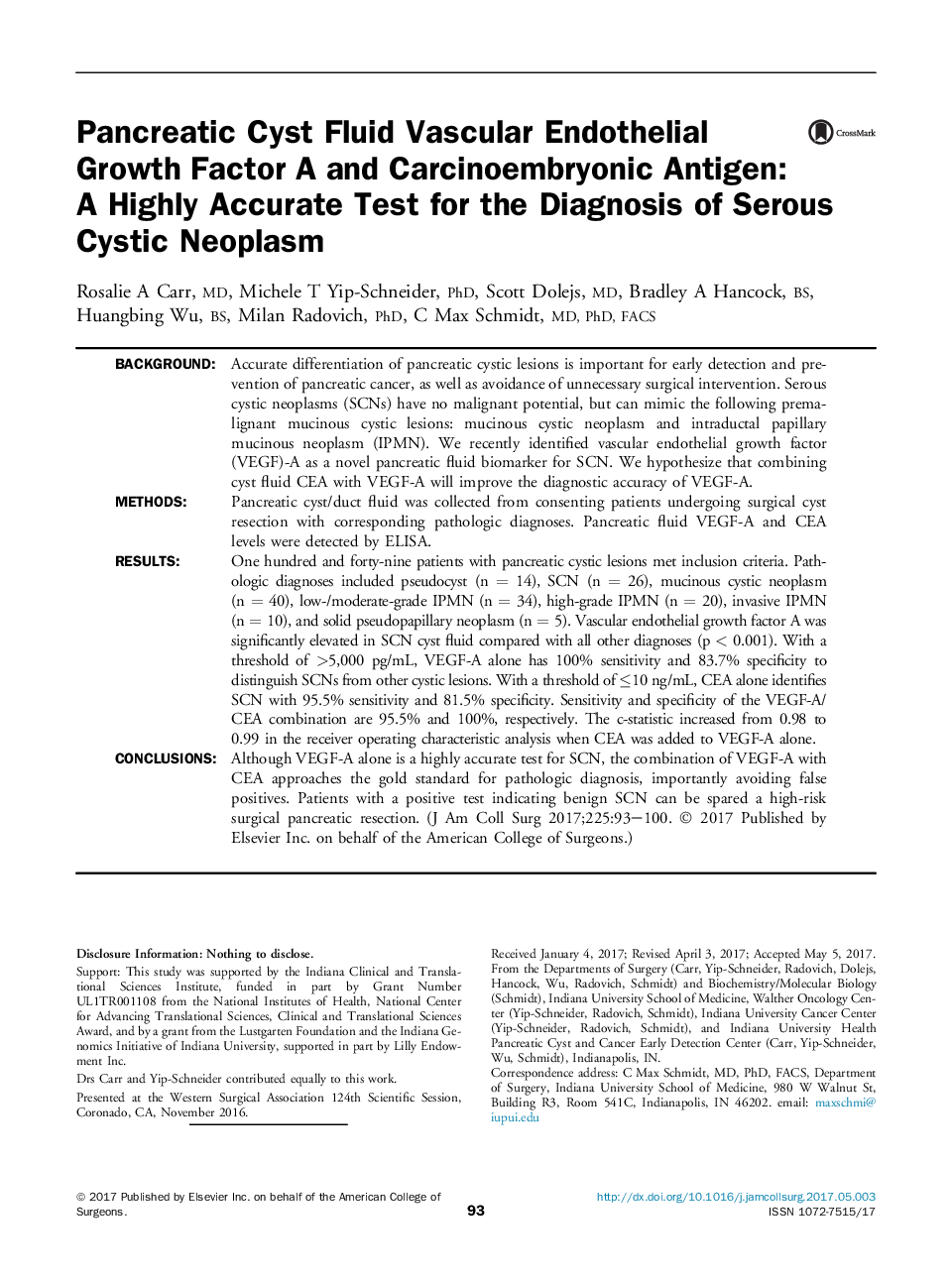| کد مقاله | کد نشریه | سال انتشار | مقاله انگلیسی | نسخه تمام متن |
|---|---|---|---|---|
| 5733406 | 1612190 | 2017 | 8 صفحه PDF | دانلود رایگان |

BackgroundAccurate differentiation of pancreatic cystic lesions is important for early detection and prevention of pancreatic cancer, as well as avoidance of unnecessary surgical intervention. Serous cystic neoplasms (SCNs) have no malignant potential, but can mimic the following premalignant mucinous cystic lesions: mucinous cystic neoplasm and intraductal papillary mucinous neoplasm (IPMN). We recently identified vascular endothelial growth factor (VEGF)-A as a novel pancreatic fluid biomarker for SCN. We hypothesize that combining cyst fluid CEA with VEGF-A will improve the diagnostic accuracy of VEGF-A.MethodsPancreatic cyst/duct fluid was collected from consenting patients undergoing surgical cyst resection with corresponding pathologic diagnoses. Pancreatic fluid VEGF-A and CEA levels were detected by ELISA.ResultsOne hundred and forty-nine patients with pancreatic cystic lesions met inclusion criteria. Pathologic diagnoses included pseudocyst (n = 14), SCN (n = 26), mucinous cystic neoplasm (n = 40), low-/moderate-grade IPMN (n = 34), high-grade IPMN (n = 20), invasive IPMN (n = 10), and solid pseudopapillary neoplasm (n = 5). Vascular endothelial growth factor A was significantly elevated in SCN cyst fluid compared with all other diagnoses (p < 0.001). With a threshold of >5,000 pg/mL, VEGF-A alone has 100% sensitivity and 83.7% specificity to distinguish SCNs from other cystic lesions. With a threshold of â¤10 ng/mL, CEA alone identifies SCN with 95.5% sensitivity and 81.5% specificity. Sensitivity and specificity of the VEGF-A/CEA combination are 95.5% and 100%, respectively. The c-statistic increased from 0.98 to 0.99 in the receiver operating characteristic analysis when CEA was added to VEGF-A alone.ConclusionsAlthough VEGF-A alone is a highly accurate test for SCN, the combination of VEGF-A with CEA approaches the gold standard for pathologic diagnosis, importantly avoiding false positives. Patients with a positive test indicating benign SCN can be spared a high-risk surgical pancreatic resection.
Journal: Journal of the American College of Surgeons - Volume 225, Issue 1, July 2017, Pages 93-100